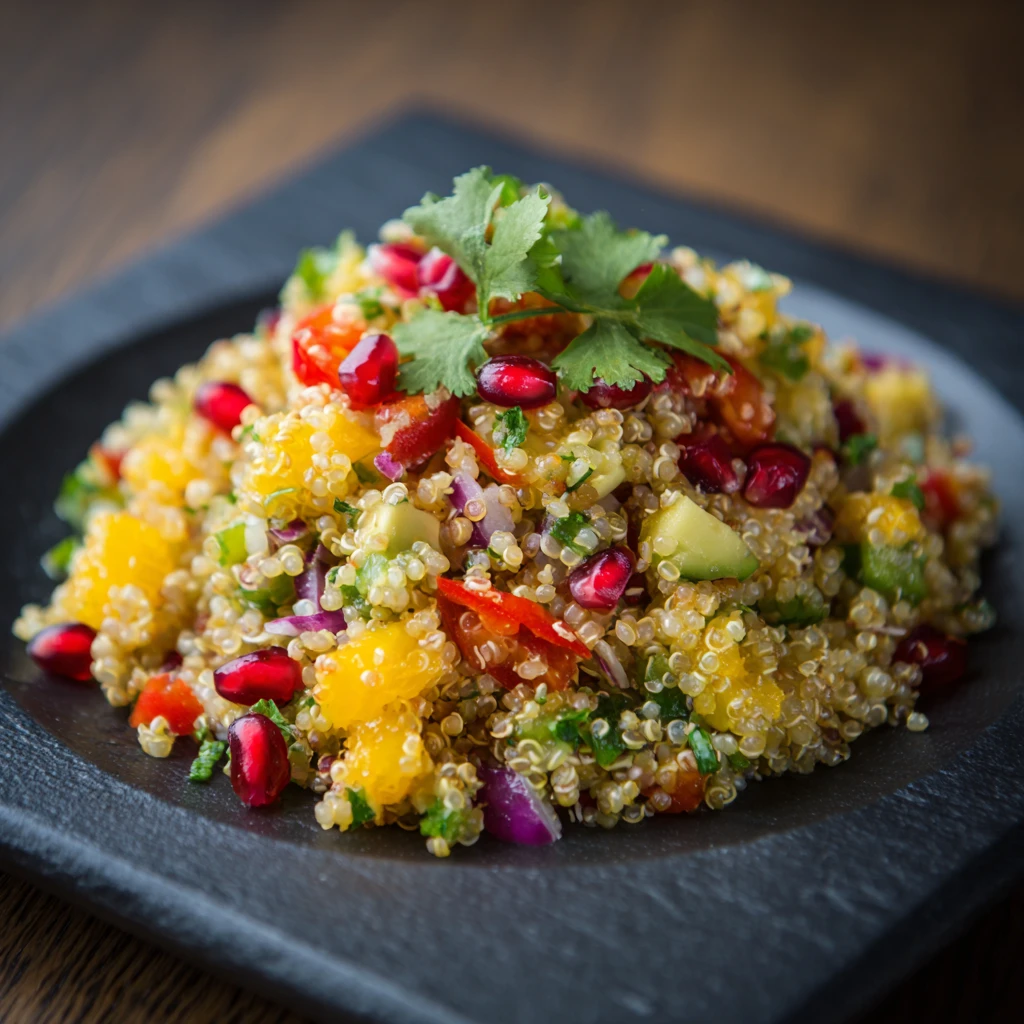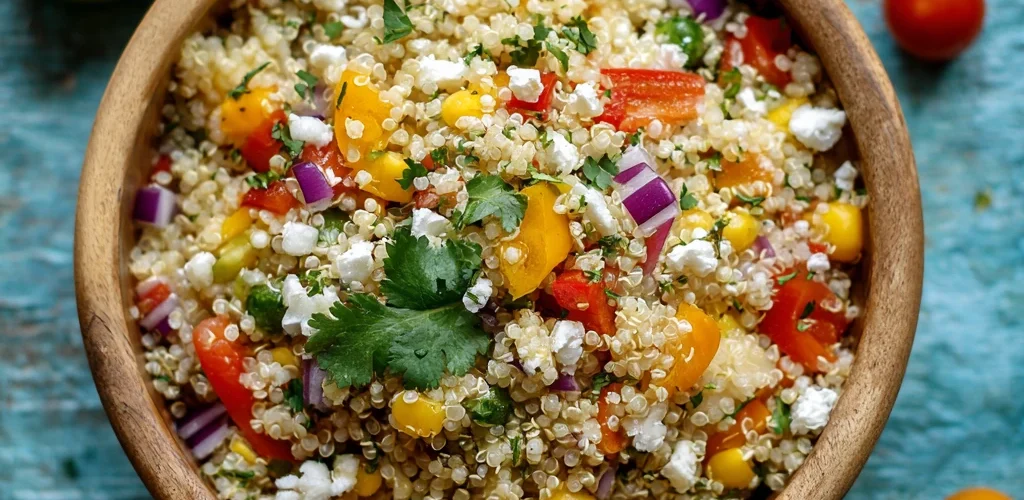Why a Slower Lunch Can Change Your Afternoon
Modern life often feels like a race against the clock. We’re constantly striving to be more productive, more efficient, and get more done. This pressure often extends to our lunch breaks, which many of us treat as a brief pit stop rather than an opportunity to refuel and recharge. However, slowing down and savoring your lunch can have a profound impact on your afternoon, boosting your energy, focus, and overall well-being. This article explores the compelling reasons why a slower lunch can be a game-changer.

The Science Behind Mindful Eating
Mindful eating is at the heart of the benefits of a slower lunch. It involves paying attention to the sensory experience of eating – the taste, texture, smell, and appearance of your food – without judgment. It encourages us to be fully present in the moment, rather than distracted by our phones, computers, or worries.
The physiological benefits of mindful eating are significant. When we eat slowly and deliberately, we give our bodies time to properly digest our food. This is because the process of digestion actually begins in the mouth. Chewing thoroughly breaks down food into smaller particles, making it easier for enzymes in the saliva to start the digestive process. Rushing through meals can bypass this crucial step, leading to indigestion, bloating, and other digestive discomforts.
Furthermore, eating slowly allows our bodies to register feelings of fullness more effectively. It takes approximately 20 minutes for the brain to receive signals from the stomach that we’ve eaten enough. Gulping down your lunch in a hurry means you’re more likely to overeat before your brain has a chance to catch up. This can lead to feelings of lethargy and sluggishness, which are hardly conducive to a productive afternoon.
Beyond the physical, mindful eating also reduces stress. Taking a break from the demands of work and focusing solely on the enjoyment of your food can be incredibly calming. It provides a much-needed mental respite, allowing you to return to your tasks feeling refreshed and rejuvenated. Studies have shown that mindful eating practices can lower cortisol levels (the stress hormone) and promote a sense of relaxation. By consciously choosing to slow down and savor your lunch, you’re actively investing in your well-being.
How to Practice Mindful Eating
Incorporating mindful eating into your lunch routine is simpler than you might think. Start by setting aside a dedicated time and space for lunch, free from distractions. Turn off your phone, close your laptop, and find a quiet spot where you can focus solely on your food.
Before you begin eating, take a moment to observe your meal. Notice the colors, textures, and aromas. Appreciate the effort that went into preparing it, from the farmers who grew the ingredients to the person who cooked it.
As you eat, pay attention to each bite. Chew thoroughly and savor the flavors. Notice how the food feels in your mouth and how it changes as you chew. Put down your fork between bites to give yourself time to fully experience the sensations.
Be aware of your hunger and fullness cues. Eat until you’re comfortably satisfied, not stuffed. Resist the urge to finish your plate just because the food is there. Remember, the goal is to nourish your body and mind, not to mindlessly consume calories.
Finally, be patient with yourself. Mindful eating is a skill that takes practice. Don’t get discouraged if you find your mind wandering or if you slip back into your old habits. Simply gently redirect your attention back to your food and keep practicing.
The Energy Boost of a Balanced Lunch
What you eat for lunch plays a crucial role in determining your energy levels throughout the afternoon. A balanced lunch, comprised of complex carbohydrates, lean protein, and healthy fats, provides sustained energy without the crash associated with sugary or processed foods.
Complex carbohydrates, such as whole grains, vegetables, and fruits, are digested slowly, providing a steady release of glucose into the bloodstream. This prevents the sudden spikes and dips in blood sugar that can lead to energy crashes. Lean protein, found in foods like chicken, fish, beans, and tofu, helps to stabilize blood sugar levels and keeps you feeling full and satisfied for longer. Healthy fats, such as those found in avocados, nuts, and olive oil, are essential for brain function and provide a source of sustained energy.
In contrast, a lunch consisting primarily of simple carbohydrates, such as white bread, pasta, and sugary drinks, can lead to a rapid rise in blood sugar followed by a dramatic crash. This can leave you feeling tired, irritable, and unable to concentrate. Processed foods, which are often high in sugar, unhealthy fats, and sodium, can also contribute to energy dips and negatively impact your overall health.
Choosing nutrient-rich, whole foods for lunch will provide your body with the fuel it needs to power through the afternoon. This translates to improved concentration, increased productivity, and a greater sense of well-being.
Lunch Ideas for Sustained Energy
Here are a few lunch ideas that incorporate complex carbohydrates, lean protein, and healthy fats:
- Salad with grilled chicken or fish: Load up a salad with leafy greens, colorful vegetables, and a grilled protein source. Add a drizzle of olive oil and vinegar for a healthy fat boost.
- Whole-grain wrap with hummus and vegetables: Spread hummus on a whole-grain wrap and fill it with your favorite vegetables, such as cucumbers, carrots, bell peppers, and spinach.
- Lentil soup with a side of whole-grain bread: Lentil soup is a hearty and nutritious option that is packed with fiber and protein.
- Quinoa bowl with roasted vegetables and tofu: Quinoa is a complete protein source and a great base for a healthy and satisfying lunch bowl.
Improved Focus and Concentration
A slow, mindful lunch can significantly improve your focus and concentration in the afternoon. When you take the time to properly nourish your body and mind, you’re setting yourself up for optimal cognitive performance.
As mentioned earlier, mindful eating reduces stress and promotes relaxation. This allows you to return to your work with a clearer and more focused mind. When you’re not burdened by stress and anxiety, you’re better able to concentrate on the task at hand.
Furthermore, a balanced lunch provides your brain with the nutrients it needs to function at its best. The brain requires a constant supply of glucose for energy, and complex carbohydrates provide a steady release of this fuel. Lean protein helps to support neurotransmitter function, which is essential for focus and concentration. Healthy fats are crucial for brain cell structure and communication.
By contrast, a rushed, unhealthy lunch can impair cognitive function. The blood sugar fluctuations caused by sugary or processed foods can lead to brain fog, difficulty concentrating, and impaired memory. Eating too much or too little can also negatively impact cognitive performance.
Strategies for Enhancing Focus
In addition to mindful eating and a balanced lunch, there are other strategies you can use to enhance your focus and concentration in the afternoon:
- Take short breaks: Get up and move around every hour to prevent mental fatigue.
- Stay hydrated: Dehydration can impair cognitive function. Drink plenty of water throughout the day.
- Practice mindfulness meditation: Even a few minutes of daily meditation can improve focus and concentration.
- Minimize distractions: Create a quiet and organized workspace to minimize distractions.
Enhanced Mood and Reduced Stress
The benefits of a slower lunch extend beyond just physical and cognitive well-being. Taking the time to nourish yourself can also have a significant impact on your mood and stress levels.
Mindful eating promotes a sense of calm and relaxation, which can help to reduce stress and anxiety. When you’re fully present in the moment, you’re less likely to be preoccupied with worries and anxieties. Taking a break from work and focusing on the enjoyment of your food can be a powerful way to de-stress and recharge.
Furthermore, a balanced lunch can help to stabilize your mood throughout the afternoon. The blood sugar fluctuations caused by sugary or processed foods can lead to mood swings and irritability. Eating a nutrient-rich meal provides your brain with the nutrients it needs to regulate mood.
Certain foods, such as those rich in omega-3 fatty acids, vitamin D, and B vitamins, have been shown to have mood-boosting effects. Including these foods in your lunch can help to improve your overall sense of well-being.
Foods That Boost Mood
Here are a few foods that are known to have mood-boosting properties:
- Fatty fish: Salmon, tuna, and mackerel are rich in omega-3 fatty acids, which have been linked to improved mood and reduced risk of depression.
- Dark chocolate: Dark chocolate contains flavonoids, which have antioxidant and anti-inflammatory properties that can boost mood.
- Bananas: Bananas are a good source of tryptophan, an amino acid that the body uses to produce serotonin, a neurotransmitter that regulates mood.
- Spinach: Spinach is rich in folate, a B vitamin that is essential for brain function and mood regulation.
Long-Term Health Benefits
The positive effects of adopting a slower, more mindful lunch routine extend far beyond just your afternoon. Over time, these small changes can contribute to significant long-term health benefits.
Consistent mindful eating can lead to improved digestion, better weight management, and a reduced risk of chronic diseases such as heart disease, type 2 diabetes, and certain types of cancer. By paying attention to your body’s hunger and fullness cues, you’re more likely to eat only what you need, preventing overeating and weight gain. A balanced lunch provides your body with the nutrients it needs to function optimally, supporting overall health and well-being.
Furthermore, reducing stress and improving your mood can have a positive impact on your long-term mental health. Chronic stress can contribute to a range of mental health problems, including anxiety, depression, and burnout. By practicing mindfulness and nourishing your body and mind, you’re investing in your long-term mental and emotional well-being.
Making Sustainable Changes
To reap the long-term benefits of a slower lunch, it’s important to make sustainable changes to your lifestyle. Start by incorporating mindful eating practices into your daily routine. Choose healthy and balanced lunch options that you enjoy and that fit into your budget and schedule. Be patient with yourself and don’t get discouraged if you slip up from time to time. The key is to keep practicing and to make small, gradual changes that you can stick with over the long term.
Over time, you’ll find that a slower, more mindful lunch becomes a natural and enjoyable part of your day. You’ll experience the benefits of increased energy, improved focus, enhanced mood, and a greater sense of overall well-being. By taking the time to nourish yourself, you’re not only improving your afternoon, but you’re also investing in your long-term health and happiness.

Frequently Asked Questions (FAQ)
Q: How long should my lunch break be?
A: Ideally, aim for at least 30 minutes, but 45-60 minutes allows for a more relaxed and mindful experience. Even 20 minutes of focused, mindful eating is better than rushing through a meal in 5.
Q: What if I'm too busy to take a long lunch break?
A: Even small changes can make a difference. Try to set aside at least 15 minutes to eat your lunch away from your desk, without distractions. Focus on chewing your food thoroughly and savoring each bite. You can also try preparing your lunch ahead of time to save time during the day.
Q: What if I don't have access to healthy lunch options?
A: Planning ahead is key. Pack your lunch the night before or on the weekend. This allows you to control the ingredients and ensure you’re eating a healthy and balanced meal.
Q: How can I avoid overeating at lunch?
A: Practice mindful eating techniques. Pay attention to your hunger and fullness cues. Eat slowly and deliberately, and put down your fork between bites. Drink water before and during your meal to help you feel full.
Q: Is it okay to eat at my desk?
A: While it’s not ideal, if you must eat at your desk, make a conscious effort to minimize distractions. Close your email, turn off notifications, and focus solely on your food.
Q: Can a slow lunch really make a difference in my productivity?
A: Yes! By reducing stress, improving focus, and providing sustained energy, a slow lunch can significantly enhance your afternoon productivity.
Q: What are some easy and healthy lunch ideas?
A: Salad with grilled chicken or fish, whole-grain wrap with hummus and vegetables, lentil soup with a side of whole-grain bread, quinoa bowl with roasted vegetables and tofu are just a few. There are many options!
Q: How can I incorporate mindful eating into my routine if I'm always eating on the go?
A: Even when you’re eating on the go, you can still practice mindfulness. Take a few deep breaths before you start eating, and try to focus on the taste and texture of your food. Chew thoroughly and savor each bite. Avoid distractions like your phone or the radio.



